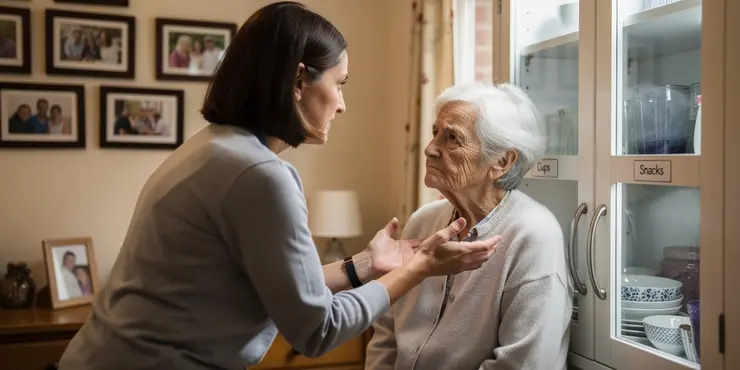
Find Help
More Items From Ergsy search
-
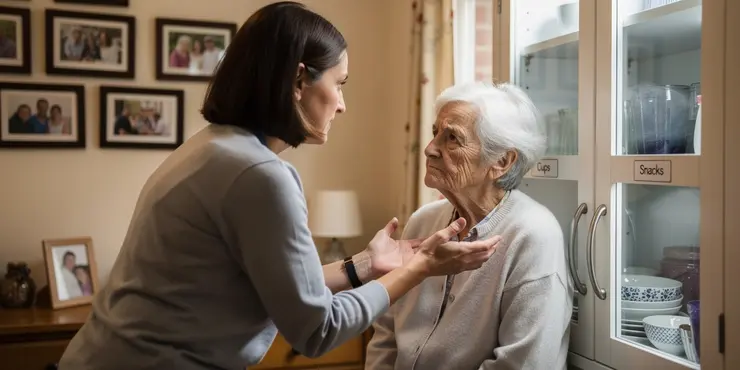
How can I support a loved one with dementia?
Relevance: 100%
-
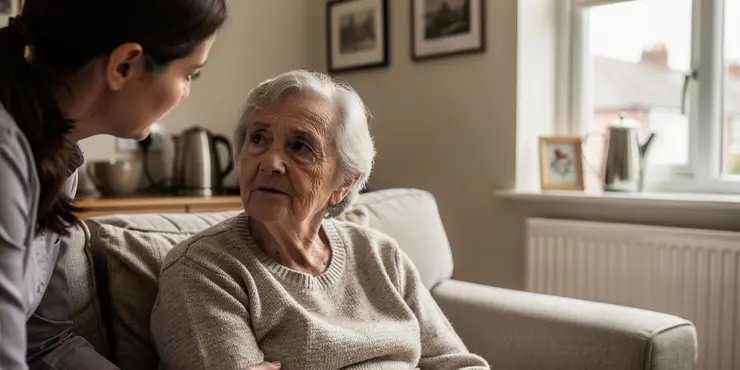
How can families support a loved one with Alzheimer's?
Relevance: 89%
-
How can I support a loved one with dementia?
Relevance: 76%
-
How can I support a loved one with dementia?
Relevance: 76%
-
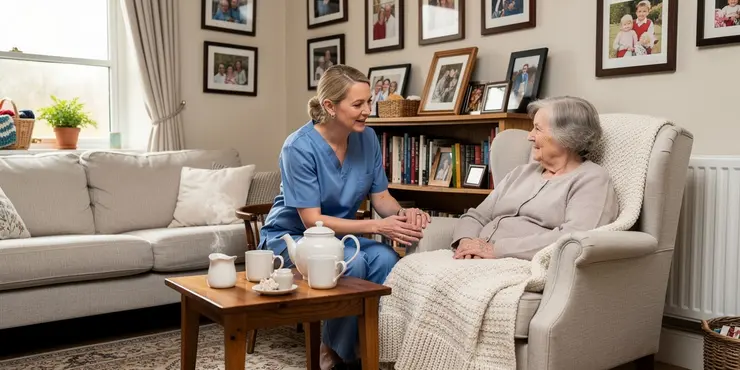
Can live-in care support individuals with dementia?
Relevance: 72%
-
How can someone help a loved one with an eating disorder?
Relevance: 66%
-

Are there any support groups for people with dementia in the UK?
Relevance: 65%
-
Living with dementia | NHS
Relevance: 60%
-
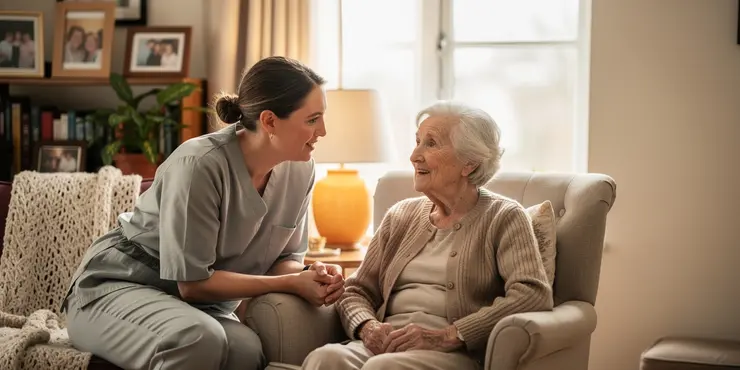
Dementia Care at Colten Care
Relevance: 59%
-
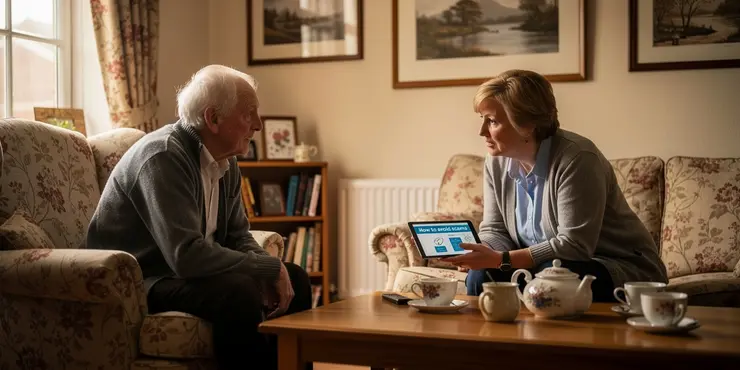
What steps can I take to help an elderly loved one avoid scams?
Relevance: 57%
-

Early onset dementia | NHS
Relevance: 56%
-

What is dementia?
Relevance: 54%
-
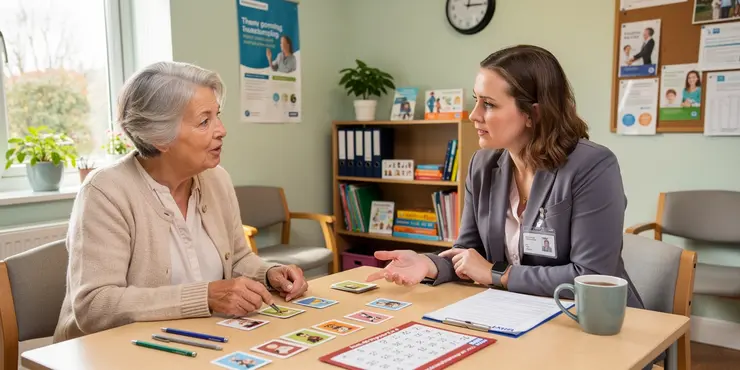
Is there a cure for dementia?
Relevance: 54%
-
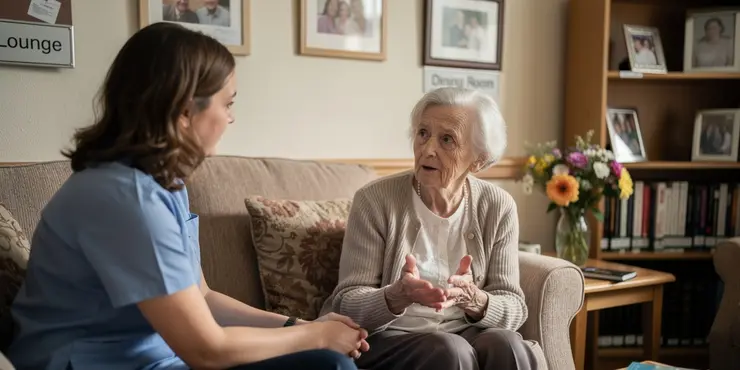
The role of care homes dedicated to caring for people living with dementia and memory loss
Relevance: 53%
-
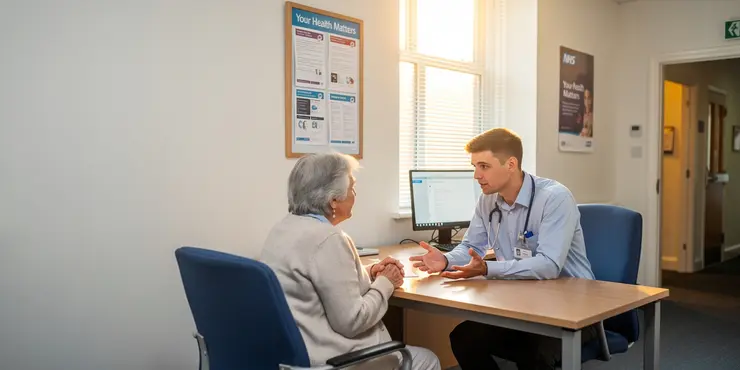
Dementia by Dr Alex Kakoullis, Coventry and Warwickshire Partnership NHS Trust
Relevance: 52%
-
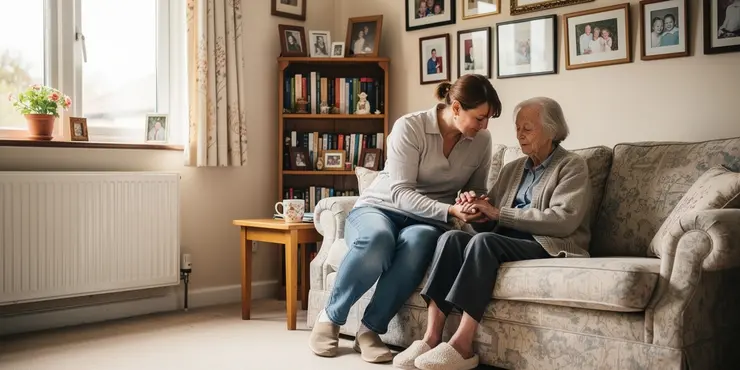
What role do carers play for those living with dementia?
Relevance: 52%
-
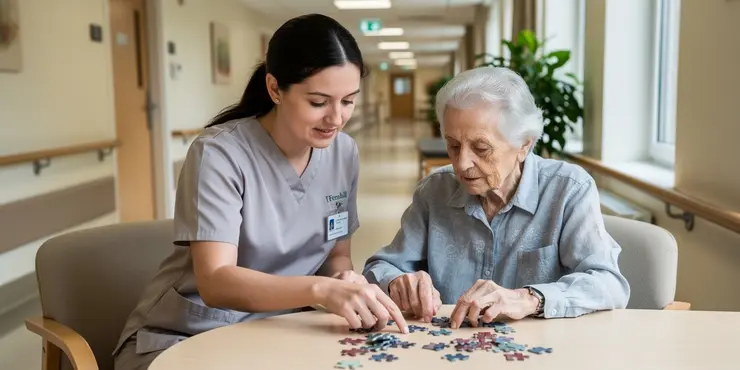
Fernhill Dedicated Dementia Care Home - a relatives perspective
Relevance: 52%
-

What financial support is available for people with dementia?
Relevance: 52%
-

How is dementia diagnosed?
Relevance: 50%
-
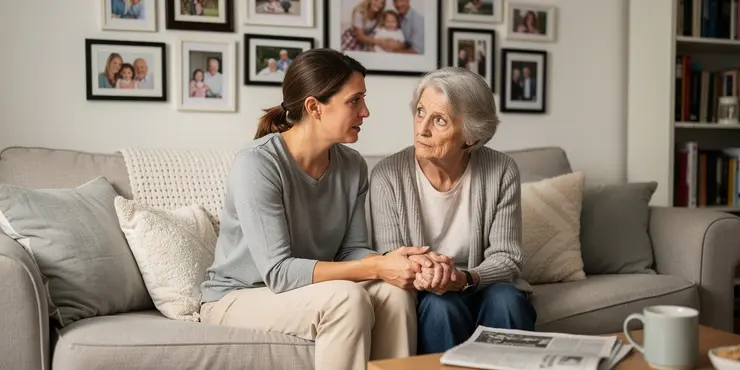
Can dementia affect younger people?
Relevance: 49%
-
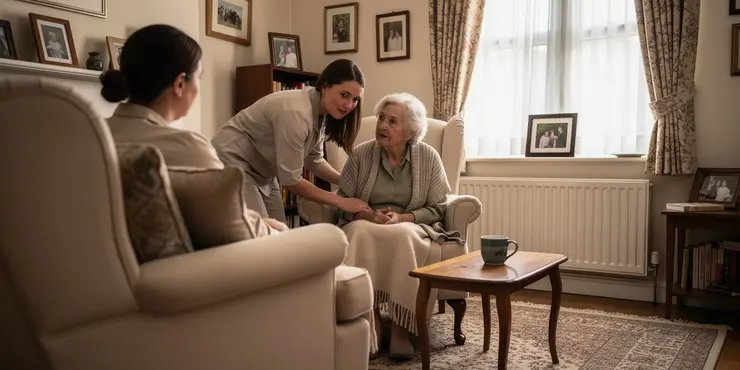
Living with changes in behaviour in frontotemporal dementia (FTD) (part 3/3)
Relevance: 49%
-

Can I bury a loved on on my own private property?
Relevance: 48%
-
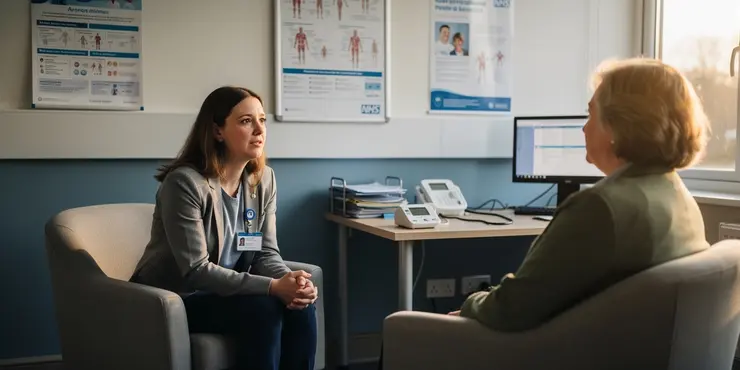
How does dementia progress over time?
Relevance: 47%
-
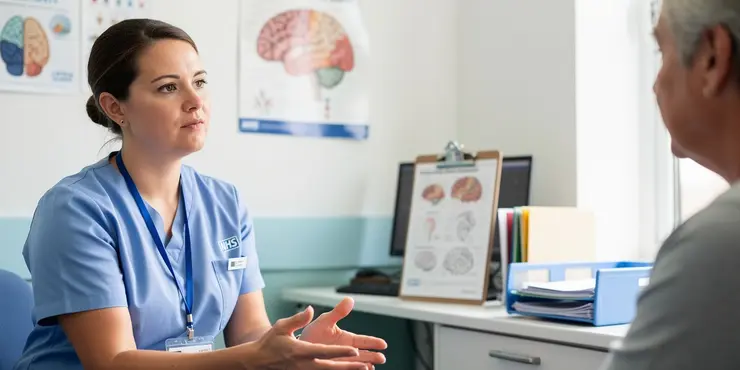
An introduction to frontotemporal dementia (FTD) (part 1/3)
Relevance: 47%
-

What are the links between menopause and dementia?
Relevance: 46%
-
Are there specific types of dementia linked to menopause?
Relevance: 46%
-

Getting help and support with frontotemporal dementia (FTD) (part 2/3)
Relevance: 45%
-
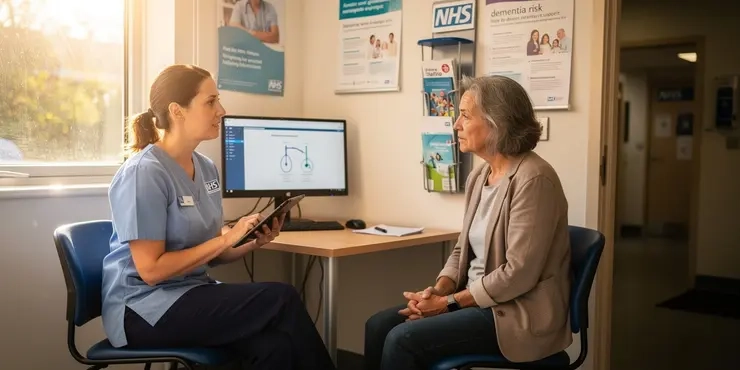
Do genetics play a role in dementia risk post-menopause?
Relevance: 45%
-

Is there scientific evidence linking menopause to dementia?
Relevance: 44%
-
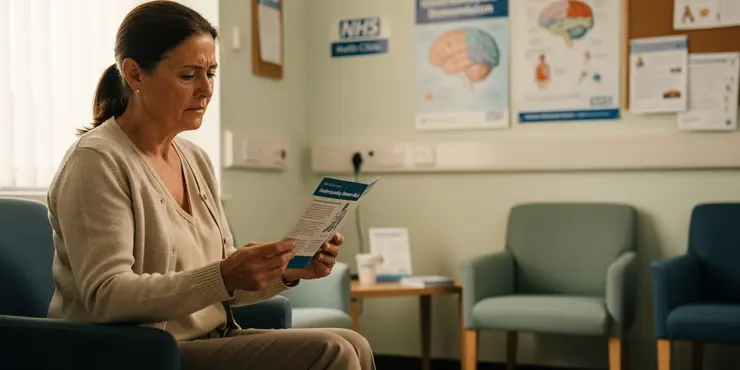
Do male and female brains age differently regarding dementia risk?
Relevance: 44%
-

Is the age of menopause onset related to dementia risk?
Relevance: 44%
-
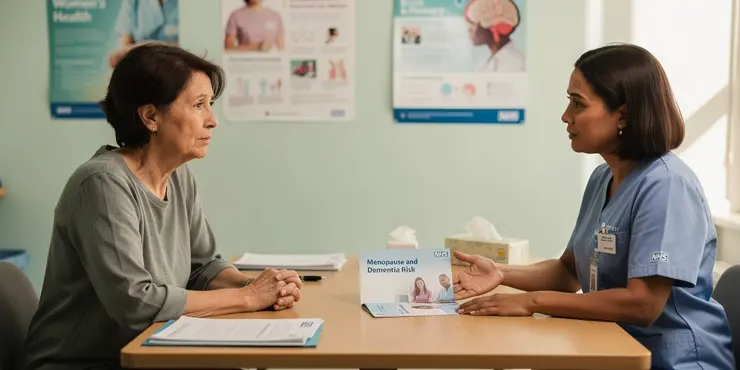
How does menopause potentially affect dementia risk?
Relevance: 42%
-

Can hormone replacement therapy (HRT) impact dementia risk?
Relevance: 41%
-

How common is it for women to develop dementia after menopause?
Relevance: 41%
-

Can lifestyle changes during menopause help reduce dementia risk?
Relevance: 41%
-

What further research is needed about menopause and dementia?
Relevance: 41%
-

What is dementia?
Relevance: 41%
-
What symptoms can overlap between menopause and the early stages of dementia?
Relevance: 40%
-
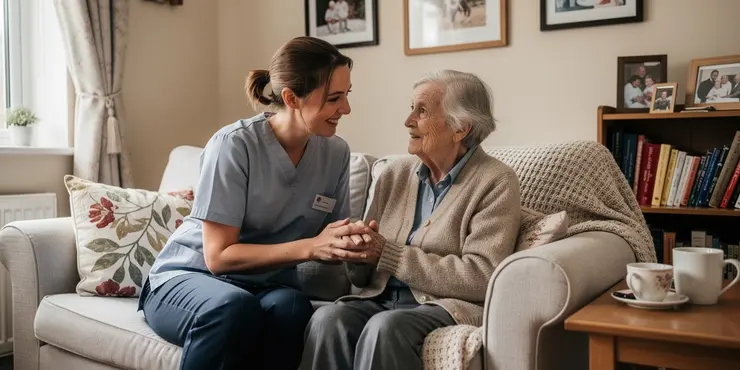
What emotional support is available for carers of Alzheimer's patients?
Relevance: 40%
-
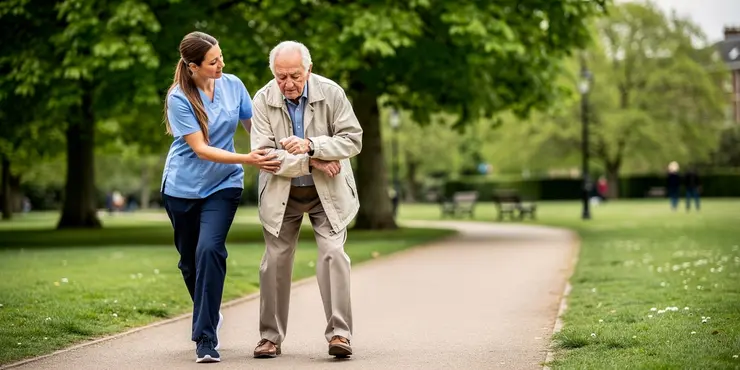
What lifestyle changes can help someone with dementia?
Relevance: 36%
Understanding Dementia
Dementia is a syndrome that affects memory, cognition, and behavior, impacting the daily life of individuals. It is important to understand that dementia is not a specific disease but a general term for the impaired ability to think, remember, or make decisions. Understanding the nature of dementia is the first step in providing effective support to a loved one dealing with this condition.
Communicating Effectively
Communication can become challenging for those with dementia. It is essential to be patient, speak clearly, and use simple sentences. Non-verbal communication such as facial expressions and gestures can also be helpful. Always listen attentively and give your loved one plenty of time to respond. Avoid correcting or arguing, as this may lead to frustration.
Creating a Safe Environment
Ensuring the safety of a person with dementia is crucial. Make their living space safe and comfortable by removing tripping hazards, installing handrails where necessary, and ensuring good lighting. Label cupboards and drawers with pictures or words to help them find things easily. Additionally, consider installing safety devices such as smoke alarms and carbon monoxide detectors.
Providing Emotional Support
Individuals with dementia may feel isolated or depressed. Regular companionship can make a significant difference in their emotional wellbeing. Engage in activities they enjoy and encourage social interaction with family and friends. Demonstrating empathy and understanding can help reassure them that they are not alone in their journey.
Encouraging Independence
While it is important to help a loved one with dementia, encouraging them to do as much as possible independently can boost their confidence. Offer gentle guidance and support rather than taking over tasks. Encourage them to make choices, such as selecting their clothes or deciding on daily activities, to preserve a sense of autonomy.
Seeking Professional Assistance
As dementia progresses, professional help may become necessary. Engage with healthcare professionals such as dementia nurses or occupational therapists who can provide expert advice on managing symptoms and improving your loved one’s quality of life. These professionals can also assist in creating personalized care plans and suggest suitable therapies.
Accessing Support Networks
Various support networks and resources are available for caregivers in the UK. Organisations like the Alzheimer’s Society offer information, helplines, and local support groups. Connecting with other caregivers can provide emotional support and practical advice on coping strategies and available services. Services such as respite care can also offer temporary relief to caregivers, allowing them to take breaks and recharge.
Understanding Dementia
Dementia is a condition that makes it hard to remember things, think clearly, or behave as usual. It can change how a person lives every day. Dementia is not one specific illness, but it is a name for when people have trouble thinking, remembering, or making choices. Knowing what dementia is can help you support someone you care about.
Communicating Effectively
Talking with someone who has dementia can be hard. It’s important to be patient and talk clearly. Use short and simple sentences. You can also use facial expressions and hand movements to help communicate. Listen carefully and give time for answers. Try not to argue or correct them, as it might upset them.
Creating a Safe Environment
It is very important to make sure a person with dementia is safe at home. Keep their home safe by removing things that might cause falls, putting in handrails, and having good lights. Use pictures or words to label where things go to help them remember. You might also need smoke alarms and carbon monoxide detectors for safety.
Providing Emotional Support
People with dementia might feel lonely or sad. Being with them regularly can make them feel better. Do fun things together and encourage them to meet with family and friends. Show that you care and understand them, which can help them not feel alone.
Encouraging Independence
Helping someone with dementia is important, but letting them do things by themselves can make them feel good. Guide them gently and support them, but don’t do everything for them. Let them make small choices, like picking their clothes or activities for the day. This helps them feel in control.
Seeking Professional Assistance
As dementia gets worse, you may need help from professionals. You can talk to dementia nurses or therapists who know how to manage symptoms and make life better for your loved one. They can help you plan care and find good therapies that can help.
Accessing Support Networks
There are many support groups and resources in the UK for caregivers. Groups like the Alzheimer’s Society can give you information, help on the phone, and support groups nearby. Meeting other caregivers can give you emotional support and advice. Services like respite care can give you a break, so you can rest and come back refreshed.
Frequently Asked Questions
Useful Links
This website offers general information and is not a substitute for professional advice.
Always seek guidance from qualified professionals.
If you have any medical concerns or need urgent help, contact a healthcare professional or emergency services immediately.
Some of this content was generated with AI assistance. We’ve done our best to keep it accurate, helpful, and human-friendly.
- Ergsy carfully checks the information in the videos we provide here.
- Videos shown by Youtube after a video has completed, have NOT been reviewed by ERGSY.
- To view, click the arrow in centre of video.
- Most of the videos you find here will have subtitles and/or closed captions available.
- You may need to turn these on, and choose your preferred language.
- Go to the video you'd like to watch.
- If closed captions (CC) are available, settings will be visible on the bottom right of the video player.
- To turn on Captions, click settings .
- To turn off Captions, click settings again.
More Items From Ergsy search
-

How can I support a loved one with dementia?
Relevance: 100%
-

How can families support a loved one with Alzheimer's?
Relevance: 89%
-
How can I support a loved one with dementia?
Relevance: 76%
-
How can I support a loved one with dementia?
Relevance: 76%
-

Can live-in care support individuals with dementia?
Relevance: 72%
-
How can someone help a loved one with an eating disorder?
Relevance: 66%
-

Are there any support groups for people with dementia in the UK?
Relevance: 65%
-
Living with dementia | NHS
Relevance: 60%
-

Dementia Care at Colten Care
Relevance: 59%
-

What steps can I take to help an elderly loved one avoid scams?
Relevance: 57%
-

Early onset dementia | NHS
Relevance: 56%
-

What is dementia?
Relevance: 54%
-

Is there a cure for dementia?
Relevance: 54%
-

The role of care homes dedicated to caring for people living with dementia and memory loss
Relevance: 53%
-

Dementia by Dr Alex Kakoullis, Coventry and Warwickshire Partnership NHS Trust
Relevance: 52%
-

What role do carers play for those living with dementia?
Relevance: 52%
-

Fernhill Dedicated Dementia Care Home - a relatives perspective
Relevance: 52%
-

What financial support is available for people with dementia?
Relevance: 52%
-

How is dementia diagnosed?
Relevance: 50%
-

Can dementia affect younger people?
Relevance: 49%
-

Living with changes in behaviour in frontotemporal dementia (FTD) (part 3/3)
Relevance: 49%
-

Can I bury a loved on on my own private property?
Relevance: 48%
-

How does dementia progress over time?
Relevance: 47%
-

An introduction to frontotemporal dementia (FTD) (part 1/3)
Relevance: 47%
-

What are the links between menopause and dementia?
Relevance: 46%
-
Are there specific types of dementia linked to menopause?
Relevance: 46%
-

Getting help and support with frontotemporal dementia (FTD) (part 2/3)
Relevance: 45%
-

Do genetics play a role in dementia risk post-menopause?
Relevance: 45%
-

Is there scientific evidence linking menopause to dementia?
Relevance: 44%
-

Do male and female brains age differently regarding dementia risk?
Relevance: 44%
-

Is the age of menopause onset related to dementia risk?
Relevance: 44%
-

How does menopause potentially affect dementia risk?
Relevance: 42%
-

Can hormone replacement therapy (HRT) impact dementia risk?
Relevance: 41%
-

How common is it for women to develop dementia after menopause?
Relevance: 41%
-

Can lifestyle changes during menopause help reduce dementia risk?
Relevance: 41%
-

What further research is needed about menopause and dementia?
Relevance: 41%
-

What is dementia?
Relevance: 41%
-
What symptoms can overlap between menopause and the early stages of dementia?
Relevance: 40%
-

What emotional support is available for carers of Alzheimer's patients?
Relevance: 40%
-

What lifestyle changes can help someone with dementia?
Relevance: 36%


